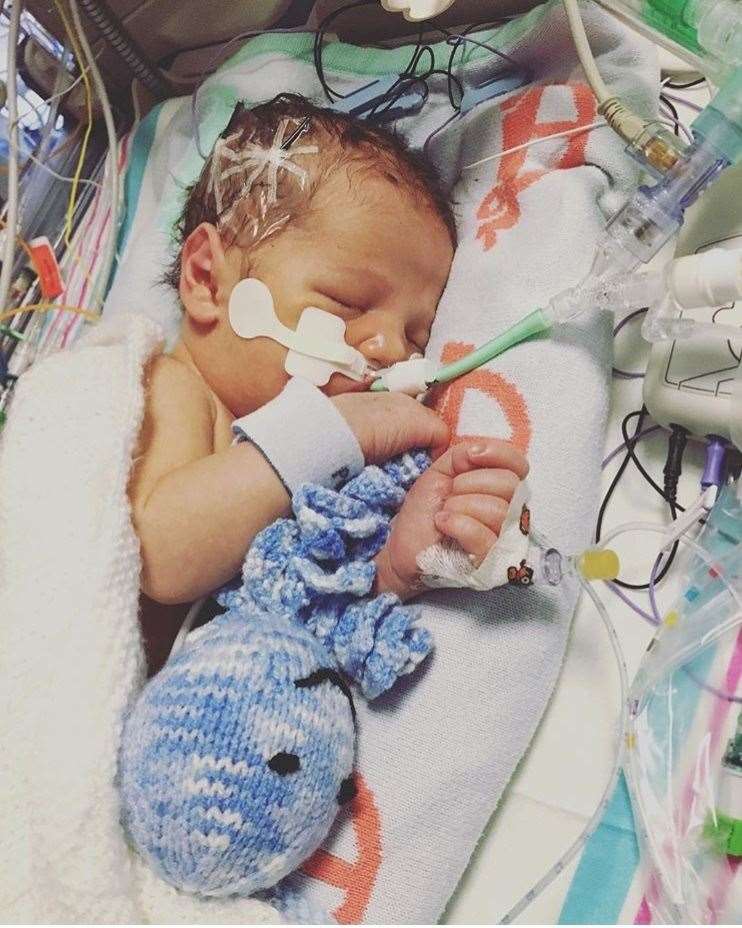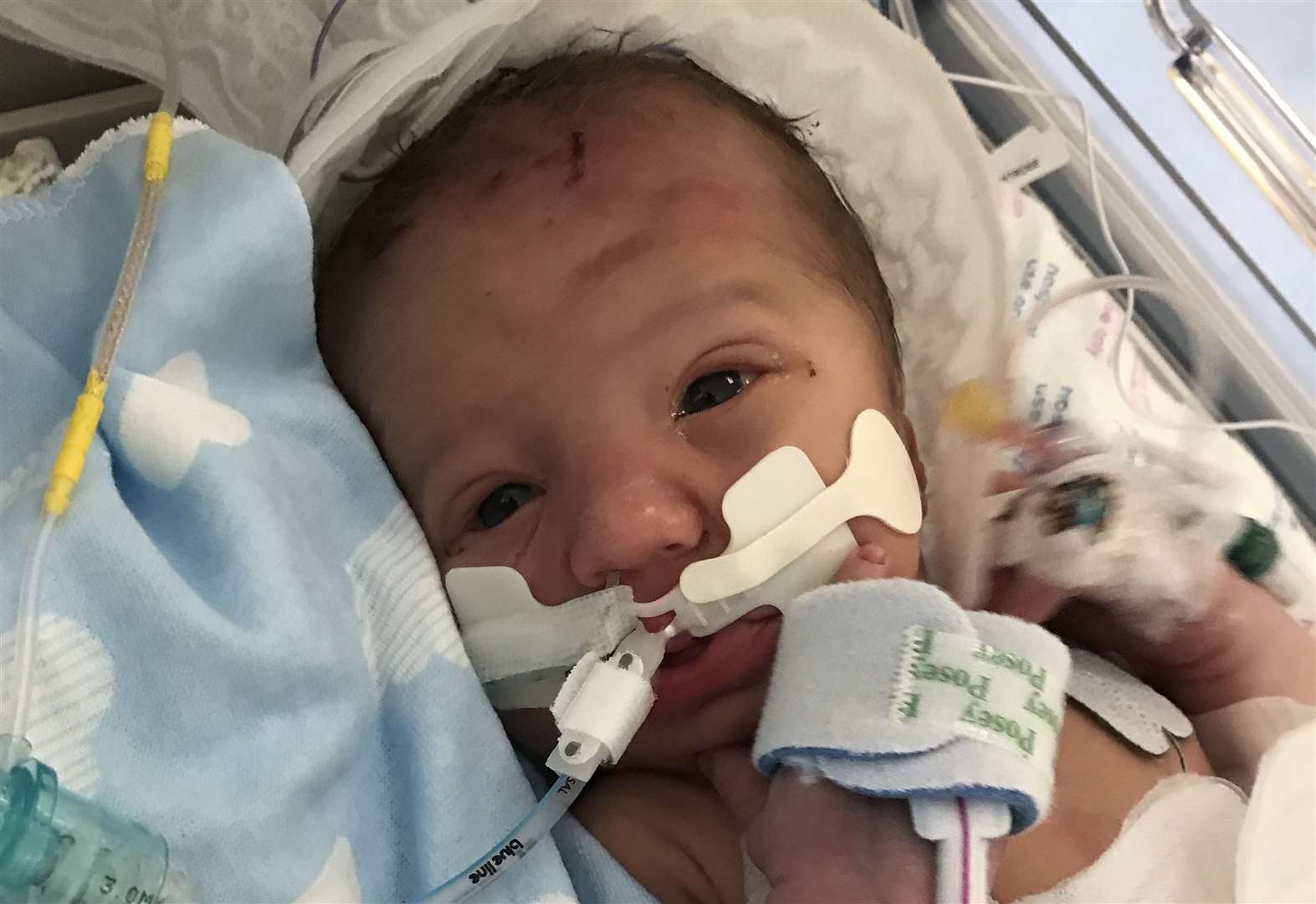Dr tells inquest of 'panic' over birth of baby Harry Richford at QEQM, Margate
Published: 19:10, 08 January 2020
Updated: 20:39, 08 January 2020
The traumatic birth of a baby, who died a week later, caused panic among hospital staff, a doctor revealed.
Dr Chirstos Spyroulis, who finally delivered Harry Richford, said the worry was caused because it was such a difficult birth.

Dr Spyroulis told an inquest: "People wer panicking, midwives and also myself.
"We could not deliver the baby easily."
The hearing was told that the mother, Sarah Richford of Birchington, could see the fraught atmosphere around her.
It had been a traumatic and long labour in which the child's heart rate frequently dropped, the hearing has been told.
Coroner Christopher Sutton-Mattocks told Dr Spyroulis: "So she could see the panic around her. "It must have been extremely frightening."

Dr Spyroulis said: "Yes, I agree."
The doctor said he had only experienced three previous deliveries with that scale of difficulty in his career.
The revelation came today during the the third day of an inquest, at Sandwich Guildhall, after Harry only lived for a week.
Harry was born by emergency caesarian at the Queen Elizabeth the Queen Mother Hospital in Margate on November 2, 2017.
He was delivered by Dr Spyroulis at exactly 3.32am.
Harry was so unwell that he had to be taken to the neonatal intensive care unit at the William Harvey Hospital in Ashford.
The tiny boy died of hypoxia on November 9, a condition caused by lack of oxygen.
Dr Syproulis said he had first got involved with Harry's case, meeting Mrs Richford, at 8.45pm on Wednesday, November 1.
He said that Mrs Richford had been pushing to give birth for an hour yet the baby was descending. He said this turned out to be a "very significant emergency"
Dr Spyroulis qualified as a doctor in Romania in 2002 and was an experienced GP and general surgeon.
He completed his training in obstetrics and gynaecology abroad in 2012 and did the same for the UK by 2013.
But he was a locum at the QEQM and was only on his third night in that role when Harry was born.
He said nobody had asked about, or assessed, his skills when he was at the QEQM.
On the first day of the inquest questions were raised about the monitoring of Harry's heartbeat through cardiotocographs (CTG) and the back-to-back position of the baby during labour.
It was also asked and whether Mrs Richford had the dangerous condition uterine hyperstimulation while being given the drug Syntocinon, used to help progress labour.
The inquest had already heard how staff disagreed over whether Syntocinon should be administered while the baby's heart rate kept dropping.
East Kent Hospitals Trust already made a public apology to Harry's parents, Sarah and Tom, over the tragedy.
The 12-day inquest continues until Tuesday, January 21.
For more information on why we cover inquests, click here.
Read more: All the latest news from Thanet
More by this author
Sam Lennon